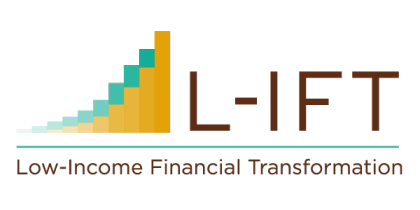Between 06th April and 10th April, L-IFT held a training for its field researchers in Jinja (Uganda). The training marked a conclusion of over 6 months of data collection for the Financial and Energy Diaries Research. It was organized to equip the field researchers with the knowledge and skills they would need for the endline study and an opportunity for them to share and reflect on their research experiences.
Most training sessions were facilitated by L-IFT founder Anne Marie van Swinderen and Programme Manager Marcienne Umubyeyi with additional input from guest facilitators. Below are some of the highlights of the training.



Preparation for the endline: One of the objectives of the training was to prepare the field researchers for the endline study, which was to be carried out immediately after the training. Questions included in the endline survey were discussed to ensure that its content was comprehensible to the field researchers.
Feedback from the field: The feedback session was the central agenda of the training. It gave the field researchers an opportunity to share their personal stories and challenges they encountered during the data collection exercise. It also provided the L-IFT management team and advisors valuable feedback, which can be vital in planning of future studies and determining training needs of the field researchers. Many of the talks highlighted challenges such as handling respondent’s expectations especially need for money, issues related to scheduling, security fears, logistical challenges, extreme weather and accessibility.
Having attended a previous session in September, I noticed the maturity and confidence the researchers had developed during their time in the field. This was especially shown by the researchers increased self-initiative to resolve challenges experienced during field work. It was also captivating to hear about the skills each of the field researcher felt they have developed during their work.
Career development and entrepreneurship: One of LIFT’s aim is to support field researcher in their post L-IFT career by providing them with skills to be more competitive in the job market or succeed as entrepreneurs. In line with this aim, the L-IFT team and guest facilitators held presentations on career development during the training. Given that Uganda is heralded as one of the leading entrepreneurial nations, though sustaining these business ventures remains a challenge it was not surprising that throughout the research, an overwhelming majority of the field researchers expressed interest in venturing into private business either in the short or long run. Hence, a key addition to the training, which was highly appreciated by the researchers, was the presentation by one of the guest facilitators on business planning.
Further presentations were held by prospective employees, such as the solar now recruitment team, who highlighted the opportunities in this sector as well as skills they expect from prospective employees.
Cultural dances and dinner: The crowning moment for the training was a dinner organized by the team. This included cultural dances by each of the diverse groups of people represented in the training, ranging from the immemorable dance by the energetic Mbale team to the elegant Rwandese dance. It was a fitting conclusion of those five days about education and fun.
By Simon Yesho
Research Intern
